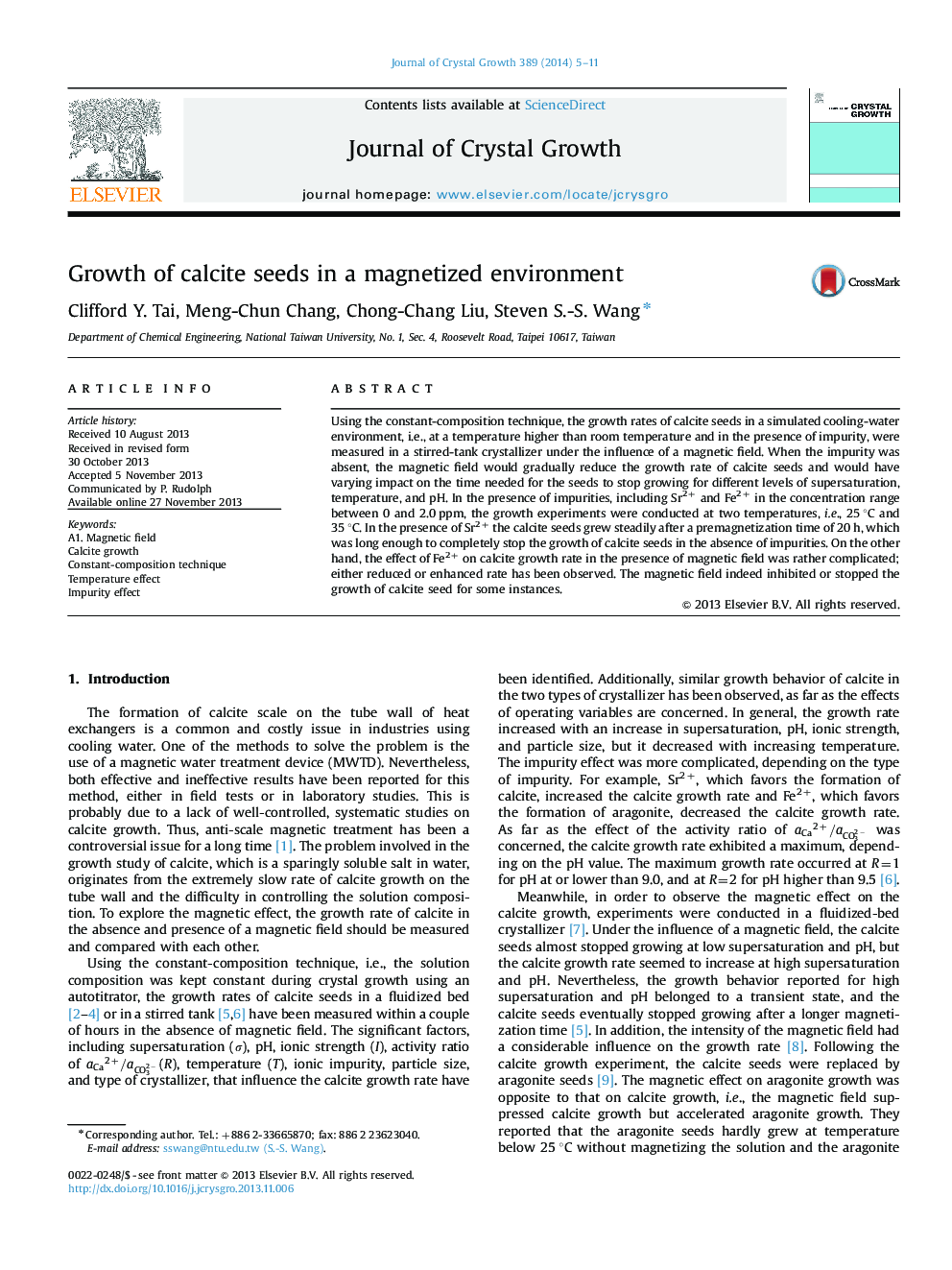| Article ID | Journal | Published Year | Pages | File Type |
|---|---|---|---|---|
| 1790658 | Journal of Crystal Growth | 2014 | 7 Pages |
•Growth rate of calcite seeds was measured in a simulated cooling water environment.•Without impurity, magnetic field inhibited or even stopped the growth of calcite seed.•The magnetic effect might fail in the presence of a certain type of impurity.•The magnetic effect was reduced under some solution conditions.•The scale prevention using a magnetic field is worthy of further study.
Using the constant-composition technique, the growth rates of calcite seeds in a simulated cooling-water environment, i.e., at a temperature higher than room temperature and in the presence of impurity, were measured in a stirred-tank crystallizer under the influence of a magnetic field. When the impurity was absent, the magnetic field would gradually reduce the growth rate of calcite seeds and would have varying impact on the time needed for the seeds to stop growing for different levels of supersaturation, temperature, and pH. In the presence of impurities, including Sr2+ and Fe2+ in the concentration range between 0 and 2.0 ppm, the growth experiments were conducted at two temperatures, i.e., 25 °C and 35 °C. In the presence of Sr2+ the calcite seeds grew steadily after a premagnetization time of 20 h, which was long enough to completely stop the growth of calcite seeds in the absence of impurities. On the other hand, the effect of Fe2+ on calcite growth rate in the presence of magnetic field was rather complicated; either reduced or enhanced rate has been observed. The magnetic field indeed inhibited or stopped the growth of calcite seed for some instances.
